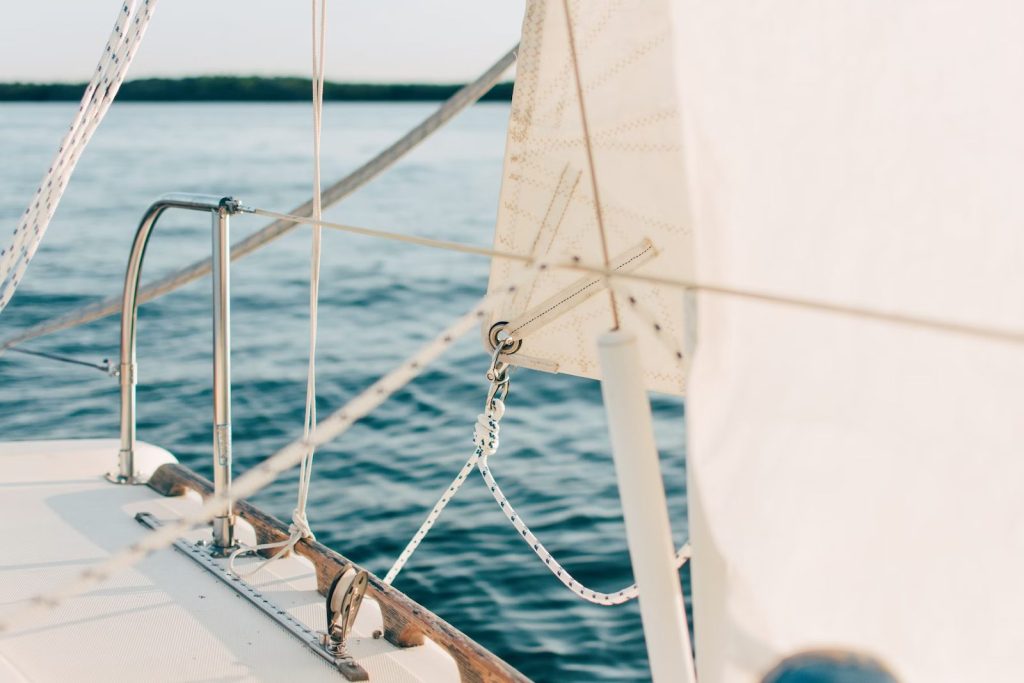How Travelers Can Mitigate Risks on Boating Trips: 7 Things to Know
0 View
Share this Video
- Publish Date:
- November 13, 2023
- Category:
- HOW TO -
- Video License
- Standard License
- Imported From:
- Youtube
Tags
Sponsored Area
TODAY'S ADVENTURE
How Travelers Can Mitigate Risks on Boating Trips: 7 Things to Know
Traveling by boat can be an exciting and rewarding experience, offering a unique opportunity to explore the world from a different perspective.
However, shipwrecked boats, people lost overboard and other unexpected incidents sometimes occur when out on the water, which is why travelers should take certain precautions before embarking on their voyage.
From obtaining the proper gear and licenses to having appropriate safety protocols in place, here are 7 things you need to know to help ensure your boating trip goes smoothly, but also what you should do if you actually get in an accident.
What to do if you do get in a boating accident
Getting into a boating accident can be a frightening experience, but it’s important to know what to do in that situation. If possible, the first step is to ensure the safety of all involved. This may mean moving away from the area of impact or gathering all passengers onto a life raft.
Next, contact the authorities for assistance. Depending on the severity of the accident, you may also need to call for medical help. Documenting the incident with photographs can also be helpful for insurance purposes.
Then, contact a lawyer who can help you out. Moreover, whether you need a St. Louis boating accident lawyer, or one from any other city for that matter, just look them up online.
That way, you can make sure you’re getting the best possible representation to help you navigate the legal process after your accident.
1. Research the Weather Conditions
Before setting sail on a boating adventure, it’s crucial to research the weather conditions for the area you’ll be exploring. Weather forecasts are readily available online and can provide vital information to help ensure a safe and enjoyable journey.
Checking for storm warnings, high winds, or rough seas can all help you avoid dangerous situations on the water. Being prepared for any weather conditions that may arise will also allow you to better plan for your trip, ensuring you have the necessary gear and equipment on board.
2. Plan Ahead – Make sure to plot out routes
As the weather warms up and summer approaches, many people are looking forward to fun outdoor activities like boating trips. While it’s important to enjoy these experiences, we must also prioritize safety, and that includes planning ahead.
Before setting out on a boating trip, it’s crucial to plot out your route in advance, taking note of any areas to avoid or potential hazards. Additionally, it’s always wise to let family or friends know your plans ahead of time, including where you’ll be going and when you expect to return.
3. Take Safety Precautions – Wear a life jacket and bring along safety equipment
Going on a boating trip is always an exciting adventure, but it’s important to remember to prioritize safety. Before heading out on the water, be sure to take precautions like wearing a life jacket and bringing along safety equipment such as flares and whistles.
These items can make all the difference in an emergency situation and could even save your life.
Therefore, whether you’re out for a leisurely sail or an action-packed day of watersports, ensure that safety is at the forefront of your mind and that you’re properly prepared for any situation that may arise.

4. Learn Navigation Basics
Before embarking on a boating trip, it is important to familiarize yourself with the navigation basics. Even if you have years of boating experience, it never hurts to refresh your knowledge and ensure that you are equipped to handle any situation that may arise on the open water.
Knowing how to read nautical charts, understand buoy markers, and use GPS navigation can make all the difference in the safety and success of your boating adventure. So take the time to learn these essentials and feel confident in your ability to navigate the waterways.
5. Have a Float Plan – Make sure to have an emergency plan in place
Before heading out on a boating trip, it’s important to have a float plan in place. Emergencies can happen unexpectedly and being prepared can make all the difference. A float plan should include information about the boat, the crew, and the trip itinerary.
Share this plan with someone you trust who is not accompanying you on the trip. This person can alert authorities if necessary and provide them with important information about your whereabouts. A float plan is a crucial step in boating safety and can give you peace of mind while out on the water.
6. Know the Regulations – Understand local laws and regulations
Planning a boating trip is exciting, but it’s important to remember that your navigational boundaries don’t end at the state line. If you’re planning to boat in another area or state, it’s crucial to understand the local laws and regulations that come with it.
Different jurisdictions have different requirements and restrictions, which can vary from safety equipment requirements to speed limits. Understanding and adhering to these regulations can make your boating trip smoother and more enjoyable while avoiding tickets and fines.
7. Stay Alert – Be aware of your surroundings while out on the water
As the sun peeks through the clouds, you embark on a much-anticipated boating trip with your loved ones. The breeze caresses your face, and you feel the excitement building up. However, even as you soak in the delightful experience, it’s crucial to stay alert and aware of your surroundings.
A boating trip can quickly turn from fun to frightening if you don’t pay attention to your environment. Keep an eye out for other boats, buoys, and any potential hazards in your path. Ensure that everyone aboard wears a life jacket and sticks to the rules of the waterways.

Boating can be a great way to relax and have fun with friends and family, but it’s important to remain vigilant and practice lots of safety measures while out on the water.
Make sure to research weather conditions, plan ahead, take safety precautions, learn navigation basics, have a float plan, know the regulations in your area or destination, stay alert and aware of your surroundings, and never drink and boat.
If you do find yourself in an emergency situation during your boating journey, call 911 right away for help. With these tips in mind, you can confidently explore the open waters with peace of mind. Now grab your life jackets and go make some waves!
The post How Travelers Can Mitigate Risks on Boating Trips: 7 Things to Know appeared first on Travel Experta - Travel, Lifestyle, Freedom.
-
Title: How Travelers Can Mitigate Risks on Boating Trips: 7 Things to Know
Sourced From: travelexperta.com/mitigate-risks-on-boating-trips/
Published Date: Tue, 07 Nov 2023 20:35:10 +0000











